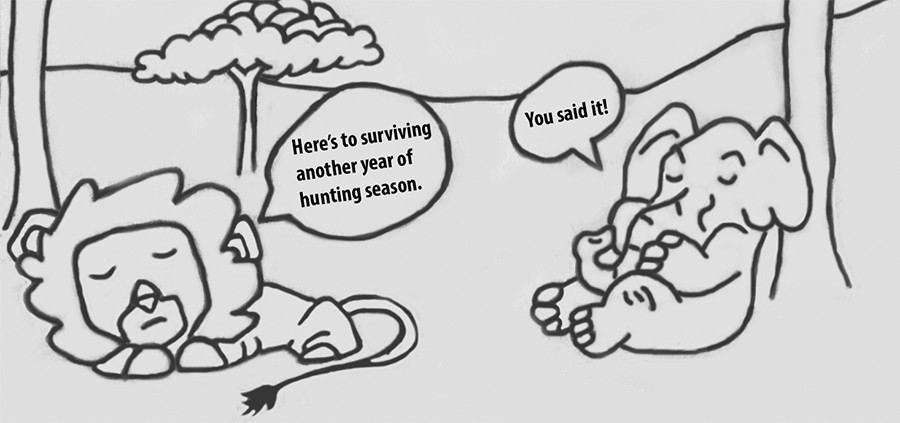Should Cecil’s death be our huge concern?
October 1, 2015
The new Cecil the lion debacle has caused a lot of tension, not only for the United States, but also for Zimbabwe. However, the reasons for tension differ between the two countries.
Though many Americans are upset about the killing, America shouldn’t punish the hunter, and the airlines are overreacting in a possibly fatal way for the Zimbabwe economy.
This summer Walter Palmer, an American dentist, killed Cecil, a local lion in Zimbabwe that had been studied for years by wildlife researchers. The backlash that followed has affected people worldwide.
Airlines have begun reviewing their passenger policies regarding big game hunting trophies.
In fact, Delta and American airlines changed their regulations, banning the shipment of trophies such as lions, elephants, leopards, buffalo and rhino. While animal activists in America cheer, Zimbabwe locals protest.
American citizens do 66 percent of the big game hunting done in Zimbabwe, and hunting itself brings $20 million into the country annually.
While it doesn’t compare to the $200 million brought in by ecotourism, it is a big part of the country’s income.
In 2013, hunting contributed more than 10 percent of the country’s GDP (gross domestic product). That’s $71 billion coming from hunting directly, nearly twice as much money from hunting brought into other countries on average.
Some say the locals are just as upset as Americans are about the dead lion, but Bryce Stafford, pastor and missionary from Exciting Baptist church, who has lived for an extended period of time in Zimbabwe, said that just can’t be true.
“I hate to generalize, (but) in that vicinity the people don’t have as big of emotional attachment to the animals. There’s more of food chain situation over there,” Stafford said.
“They were probably unhappy about how it was killed; we were more concerned on a social media scale [though]. They’re going to be more concerned about what they’re going to eat,” Stafford added.
His words ring true when compared to what the guide told the media when asked about the hunting expedition that led to Cecil’s death.
“I don’t want to shoot any animals. I do it because it is the only way I can earn a living,” said Theo Bronkhorst to the New York Times, he was the Zimbabwe guide with Palmer.
America as a country should not punish the actions of big game hunters when the hunting is done in other countries, and the way the airlines reacted as well as many activist groups could really hurt the Zimbabwe government. By taking action, America would be taking away their authority. However Zimbabwe government officials do need to make sure the hunting guides play by the rules.
“I know from first hand experience that if you try to take away the local authority there, it would mean much more chaos than a killed lion. They’re already on thin ice and to disturb that would create more chaos,” Stafford said.
He’s got a point; with these restrictions, we could devastate their economy and create even more instability in an already fragile government.

